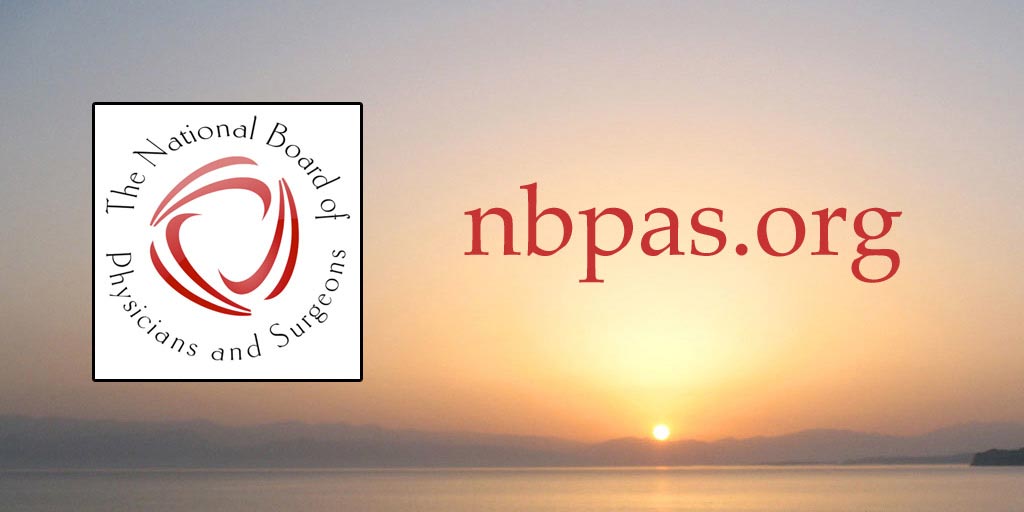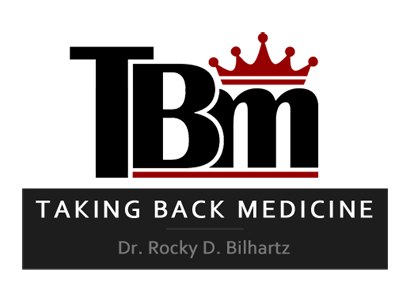
Something is new this year, a silver lining among all the madness in healthcare right now. Practicing physicians finally have a choice. We have a voice again in medicine, and you will know who to thank for it in a minute.
A whole lot of fishy stuff has been going on for quite a while regarding physician board certification in this country, and it’s only fitting that the Ivory Tower is starting to sway under pressure. A medical license in the United States is granted by law, but board certifications are received from independent organizations– many of which now appear to be glaringly similar to country clubs with odd requirements and pricey dues.
The American Board of Internal Medicine (ABIM), essentially a subsidiary of the much larger American Board of Medical Specialties (ABMS), is one group in recent years that has generated astronomical revenues through certifying physicians. I’ve previously explained how certification might be the universal scam, but just know that more than 22,000 physicians have now signed a petition challenging ABIM’s practices.
Led by Dr. Paul Teirstein, Chief of Cardiology and Director of Interventional Cardiology for the renowned Scripps Clinic in San Diego, and numerous other nationally respected practicing physicians and medical thought leaders, a new board certification society has been established. The National Board of Physicians and Surgeons was launched earlier this year and is anticipated to have thousands of members within its first few months.
You’ll need a rolodex to keep track of all the acronyms, but it’s important that you understand something about another group called the American College of Physicians (ACP). The ACP is not a board certification society. They are the largest medical-specialty organization and the second-largest physician group in the United States, with over 141,000 members. Most of these members are physician internists or internal medicine subspecialists (e.g., cardiologists, gastroenterologists, or pulmonologists) like myself.
I previously was a member of ACP. In fact, I participated on their behalf at a leadership day in Washington, D.C. several years ago. I visited with Congress and other government leaders about all types of healthcare issues. Ironically, most of the issues that we discussed then are the exact same ones still plaguing us today. Kind of shines a pessimistic light on progress, doesn’t it?
Regardless, I resigned as an active member of ACP shortly after that leadership day, and I was reminded of one reason why today. Dr. Steven Weinberger, Executive Vice President and CEO of ACP, recently wrote a letter to ACP members being critical of the newly founded National Board of Physicians and Surgeons. Dr. Weinberger’s rhetoric attempts to employ scare tactics to splinter physicians actually enhancing medicine by enabling choice in a free market. In fact, it almost seems as if Dr. Weinberger’s office has the same address as ABIM’s Ivory Tower. You’ll learn more about ACP’s own conflict of interest in a moment, but if I were a member of their organization, I’d be embarrassed by the views implicated by their leadership.
Portions of Dr. Weinberger’s letter are reprinted below in italics. Dr. Teirstein, the current President of the National Board of Physicians and Surgeons (NBPAS), gives his response in bold. (The complete manuscripts without omissions can be found here.)
**********
Dr. Weinberger: ABIM has reached out to ACP for assistance in recruiting a sample of physicians in clinical practice who can provide input about the blueprint that ABIM uses for selecting topics for questions on the secure examination. The feedback that ABIM would like to get about each topic concerns “how frequently is the topic seen in practice” and “how important is it for a practitioner to know about this topic.”
Dr. Teirstein: ACP misses the point. Clinical practices within a specialty vary greatly. Practice knowledge modules and secure exams are not tailored to individual practices and therefore will always be irrelevant to a large proportion of certifying candidates.
Dr. Weinberger: As many of you know, there has been a movement by some physicians to establish a pathway for “certification” that is independent of either ABIM or the American Board of Medical Specialties (ABMS, the umbrella organization over all specialty boards, including ABIM). We have been asked by a number of our members about “alternative pathways,” and I wanted to outline a series of questions that anyone must consider when assessing alternative options:
Will an alternative pathway be credible to substitute as a credentialing requirement for hospitals and health plans?
Dr. Teirstein: Many hospitals are currently considering such a substitution. Many believe a substitution will be credible and is sorely needed. Additionally, it should be noted that in some areas, NBPAS requirements for certification are more stringent than ABMS requirements (i.e. the NBPAS requirement for active hospital privileges in some specialties and the NBPAS requirement for privileges in the certified specialty to never have been involuntarily revoked and not reinstated).
Dr. Weinberger: If you are named in a medical liability lawsuit, how will it appear when it is noted that you have not recertified through ABIM but have instead tried to show that you are “certified” through a process that has not been widely accepted and whose requirements are minimal?
Dr. Teirstein: NBPAS is surprised ACP would resort to such a scare tactic. This is simply an embarrassment. Does ACP think physicians are naïve enough to believe ABIM certification will impact lawsuits? NBPAS Board members are thought leaders in the medical community. Clearly, NBPAS certification carries gravitas.
Dr. Weinberger: If you have a time-limited certificate from ABIM, are you willing to forfeit that primary certification in internal medicine and/or a subspecialty of internal medicine when that certificate expires?
Dr. Teirstein: This is another misguided embarrassing scare tactic. ACP leadership is attempting to mislead candidates about the ABIM MOC process. If one does not initially pursue MOC and later decides to pursue MOC, all one has to do is make up the deficiencies, and, of course, pay ABIM’s fees.
Dr. Weinberger: Is the fee for an alternative pathway reasonable considering both what you are getting as well as the expenses of the group that has developed the alternative pathway? For example, a fee of $169 every 2 years is almost half of the ABIM’s internal medicine MOC fee, but the alternative organization has no program or product development costs, as all it is doing is sending an electronic certificate (there is an additional charge for a paper certificate).
Dr. Teirstein: NBPAS is a 501(C)(3) organization. Fees will be adjusted (hopefully down), to cover expenses. NBPAS is a grassroots endeavor with no endowment compared to ABIM’s annual revenue of $55,000,000. The NBPAS annual budget is expected to be in the hundreds of thousands. Physician working for ABIM earn $400,000 to nearly $1,000,0000 annually. Physicians working for NBPAS receive no salary. With its very small budget, NBPAS must run our office, hire staff to verify physician applications, and pay legal as well as information technology expenses. Surprisingly, one of NBPAS’s expenses are fees ABMS charges to verify their diplomat’s certification (patients do not have to pay to verify physician certification but professional organizations must pay ABMS). ABIM has a $55 Million budget and does the same things as NBPAS but, additionally, provides test questions. There is no solid evidence these test questions improve the quality of patient care. It has been estimated ABIM receives approximately $4,000 for each test question it develops.
Finally, we should point out that ACP has a considerable conflict of interest on this issue. ACP sells resources that can be used for MOC. Some examples are MKSAP modules that can earn MOC points costing $389-$889 and MOC exam prep courses costing $760-$920. Furthermore, there is an informal relationship between ACP and ABIM. Many ABIM members have become president of ACP.
Ten days after NBPAS was launched, ABIM apologized to its diplomats and made positive, although inadequate, changes to MOC. NBPAS finds it offensive that ACP should take credit for these changes. Instead of complementing NBPAS on inspiring change at ABIM, ACP is publically critical of NBPAS. We believe ACP should do the right thing and support alternative certification pathways that provide physician choice.
**********
Apply for continued board certification from the National Board of Physicians and Surgeons at www.NBPAS.org


